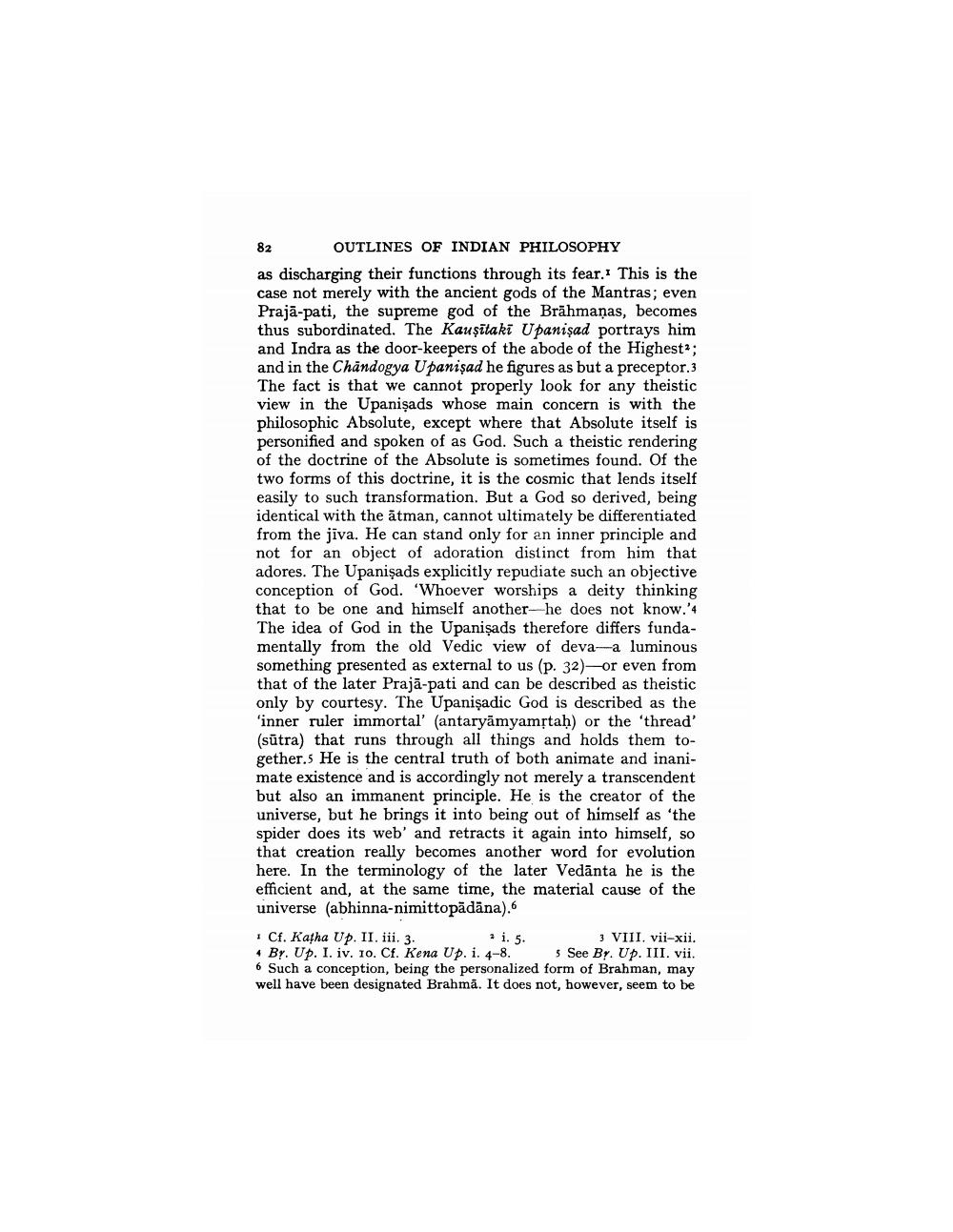________________
82 OUTLINES OF INDIAN PHILOSOPHY as discharging their functions through its fear. This is the case not merely with the ancient gods of the Mantras; even Prajā-pati, the supreme god of the Brāhmaṇas, becomes thus subordinated. The Kausitaki Upanişad portrays him and Indra as the door-keepers of the abode of the Highesta; and in the Chandogya Upanişad he figures as but a preceptor.3 The fact is that we cannot properly look for any theistic view in the Upanişads whose main concern is with the philosophic Absolute, except where that Absolute itself is personified and spoken of as God. Such a theistic rendering of the doctrine of the Absolute is sometimes found. Of the two forms of this doctrine, it is the cosmic that lends itself easily to such transformation. But a God so derived, being identical with the atman, cannot ultimately be differentiated from the jiva. He can stand only for an inner principle and not for an object of adoration distinct from him that adores. The Upanişads explicitly repudiate such an objective conception of God. 'Whoever worships a deity thinking that to be one and himself another- he does not know.'4 The idea of God in the Upanişads therefore differs fundamentally from the old Vedic view of deva-a luminous something presented as external to us (p. 32)— or even from that of the later Prajā-pati and can be described as theistic only by courtesy. The Upanişadic God is described as the 'inner ruler immortal' (antaryāmyamstah) or the thread' (sūtra) that runs through all things and holds them together. He is the central truth of both animate and inanimate existence and is accordingly not merely a transcendent but also an immanent principle. He is the creator of the universe, but he brings it into being out of himself as 'the spider does its web' and retracts it again into himself, so that creation really becomes another word for evolution here. In the terminology of the later Vedānta he is the efficient and, at the same time, the material cause of the universe (abhinna-nimittopädäna). Cf. Katha Up. II. iii. 3.
1. 5.
3 VIII. vii-xii. * By. Up. I. iv. 10. Cf. Kena Up. i. 4-8. See By. UP. III. vii. 6 Such a conception, being the personalized form of Brahman, may well have been designated Brahma. It does not, however, seem to be




